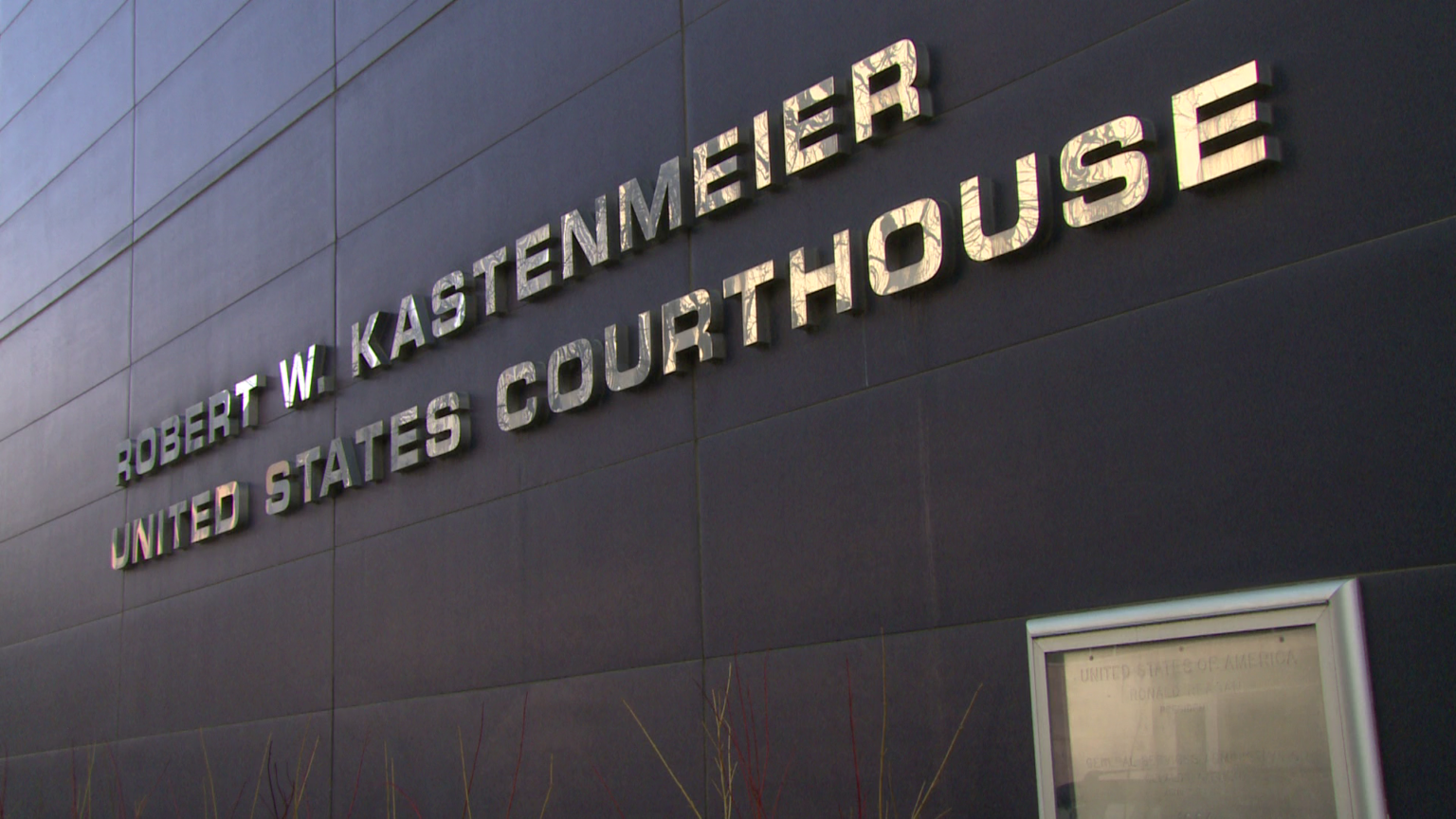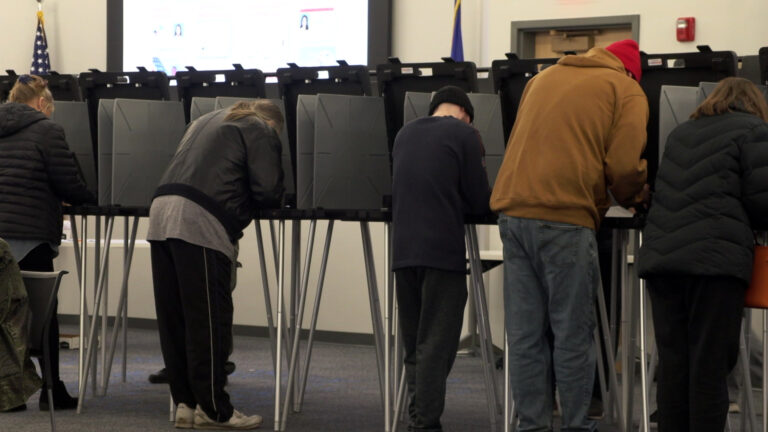Update: Federal Court Judge Rules on April Election
The federal judge in Madison extended the deadline to apply for absentee ballots, as well as the deadline for those ballots to be received.
By Zac Schultz
April 2, 2020

Western District of Wisconsin Courthouse Feb. 16, 2017.
U.S. District Judge William Conley ruled Thursday afternoon that he does not have the authority to delay Wisconsin’s spring election. Despite widespread concerns about how the COVID-19 health emergency will impact voter turnout, Conley maintained only Wisconsin’s Legislature and governor can move the election. It will remain on Tuesday, April 7.
However, Conley did order three changes regarding absentee ballots. First, Conley ordered absentee ballots no longer have to be received by election day in order to be counted. Now voters have an extra week to ensure their ballots can make it through the U.S Postal Service, as ballots will be valid if received by 4 p.m. April 13.
Second, Conley extended the timeline to request an absentee ballot through 5 p.m. April 3. The original deadline was April 2.
Finally, Conley ordered that voters who are socially isolating and not able to obtain a proper witness signature on their absentee ballot can instead submit a statement saying they were not able to safely find a witness.
Last week, the Wisconsin Elections Commission told isolated voters to get a delivery person or stranger to witness their ballot, but given the safety guidelines under the health emergency and the tight timelines in returning absentee ballots, it was expected many people were not able to get a witness in time.
More than a million absentee ballots have been requested by voters as most campaigns and Gov. Tony Evers encouraged voters to avoid the polls on election day. There are also concerns about how many polling stations will be open.
Earlier this week, 111 municipal clerks told the WEC they did not have enough staff to open a single polling location. The WEC is working to shift staff, and Evers announced the National Guard would help. Even with those efforts, there will be a dramatic reduction in the number of polling locations, causing confusion among voters and delays at a time when people are supposed to remain six feet apart.
After the ruling came out Ben Wikler, chairman of the Democratic Party of Wisconsin sent out a statement praising it, “Today’s ruling is a victory for voters, for public health, and for democracy itself. Every voter must count, even during crises, and this ruling gives voters critical time to vote safely by mail.”
Earlier this week Assembly Speaker Robin Vos, R-Rochester, stated he would be ok with a ruling that extended the timeline to receive ballots but did not support delaying the election.
The ruling did not go as far as many groups wanted. The case originated as three separate federal lawsuits seeking to alter the election, including a request to delay the election altogether. The cases were merged into one suit, and Conley heard evidence Wednesday.
Judge Compares COVID Voting to Hurricane
Conley compared holding Wisconsin’s spring election in the middle of the COVID-19 health emergency to holding an election in the middle of a hurricane during Wednesday’s hearing.
“There’s a hurricane coming. You would expect the state of Wisconsin to recognize there’s a hurricane coming,” said Conley, of the Western District of Wisconsin. In the same thought however, Conley said he did not have the authority to delay the election.
“We don’t say there’s going to be a bad storm so a federal judge should stop the election,” he said.
Conley’s comments came at the end of a four-hour evidentiary hearing on the lawsuits seeking to delay or otherwise change Wisconsin’s spring election due to the problems posed by the health emergency.
During the hearing, Conley indicated he was leaning towards a proposal that would allow absentee ballots to be counted as long as they are postmarked by election day and returned by April 13. Under current law, absentee ballots must be received by the municipal clerk by election day or they do not count.
Conley questioned Meagan Wolfe, the administrator of the Wisconsin Elections Commission, who acknowledged that clerks have received an unprecedented level of requests for absentee ballots. Due to delays in processing and mailing the ballots, she said voters may not be able to receive them and return them by election day.
Wolfe also testified that a survey of clerks by the WEC showed 111 jurisdictions did not have enough poll workers to open a single polling station on April 7. Many poll workers are elderly and in self-isolation due to fears of COVID-19 infection. It is also unclear how many people may decide to not vote due to fears of being forced to congregate at congested polling places if they cannot get an absentee ballot in time.
Conley asked, “Related to public health, is this election a good idea? No.”
The Elections Commission, Gov. Tony Evers and the Republican-led Legislature agree the only way to change the date of the election is through state law. Assembly Speaker Robin Vos, R-Rochester, and Senate Majority Leader Scott Fitzgerald, R-Juneau, said they want the election to remain on April 7. Evers wanted the legislature to pass a law ordering clerks to send an absentee ballot to every registered voter in the state, but Fitzgerald called that “a complete fantasy.”
Conley had sharp criticism for Wisconsin’s elected officials, saying the state is “ignoring the data and endangering its population.” He noted even high turnout on election day could pose a problem.
“You get a robust response and then you get pockets of COVID-19 killing people, [that is] beyond my concern, but on the hands of the Governor and legislature,” Conley said.
The judge said lawyers for the groups that were asking him to shift the election had shown him no prior cases indicating a federal judge could change a statewide election. Conley said for a statewide election to be suspended or modified by a federal judge, evidence that the election itself had been wholly undermined would be required.
“You won’t have that until election day,” said Conley.
This story was originally published Wednesday and updated Thursday after the judge’s ruling.
 Passport
Passport











Follow Us